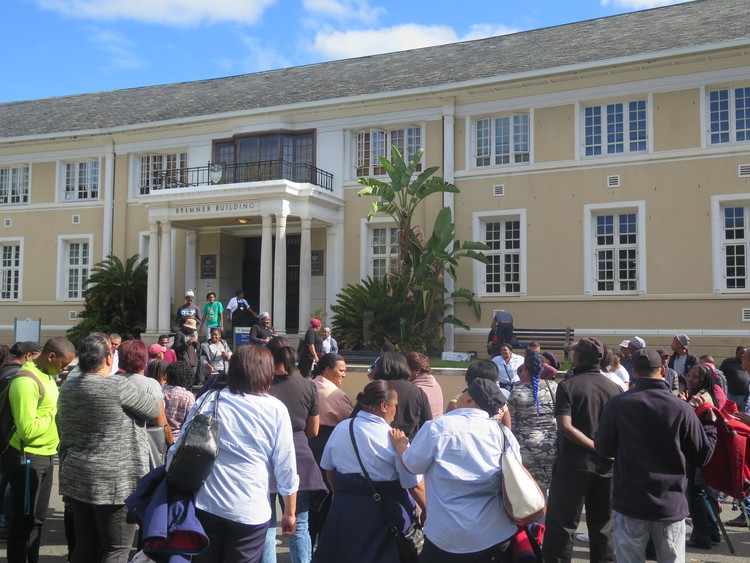UCT warns against unlawful work stoppages
University responds to protesting catering workers
The University of Cape Town (UCT) won’t tolerate unlawful work stoppages in future, said acting deputy vice-chancellor for human resources Professor Hugh Corder. Corder was responding in a statement to a group of protesting catering workers who are unhappy over their conditions of employment.
The workers were insourced by the university last year but some say that their conditions are worse now.
GroundUp covered the protest yesterday but wasn’t present when Corder arrived.
Corder said he had signed a statement written by the workers but “under great duress” as he had been surrounded and had not been able to leave.
In the statement the catering staff said they stay away from work until 1pm today and that there would be “no intimidation or victimisation of workers”. Corder said he had not been dealing with the issues directly himself and had signed the statement so that he would have the opportunity to get the “full picture”. He promised that no punitive measures would be taken against workers involved in the protest but said that “if these actions are repeated in the future there will be consequences for those involved in them.”
Corder said the demands made by catering staff “have been consistently and repeatedly attended to by the line managers with the assistance of the human resources department.” He said that the executive was “committed” to addressing the issues raised by the workers, “but this has to be done within the existing labour relations framework and protocols, with due respect for the proper processes”.
In future, “those found guilty of participating in an unlawful work stoppage will have their pay deducted and the necessary disciplinary procedures will be instituted”, he said.
“The executive will also take the necessary steps within the law to ensure that the operations of the university are not unduly disrupted.”
Support independent journalism
Donate using Payfast

Don't miss out on the latest news
We respect your privacy, and promise we won't spam you.
© 2017 GroundUp. 
This article is licensed under a Creative Commons Attribution-NoDerivatives 4.0 International License.
You may republish this article, so long as you credit the authors and GroundUp, and do not change the text. Please include a link back to the original article.

